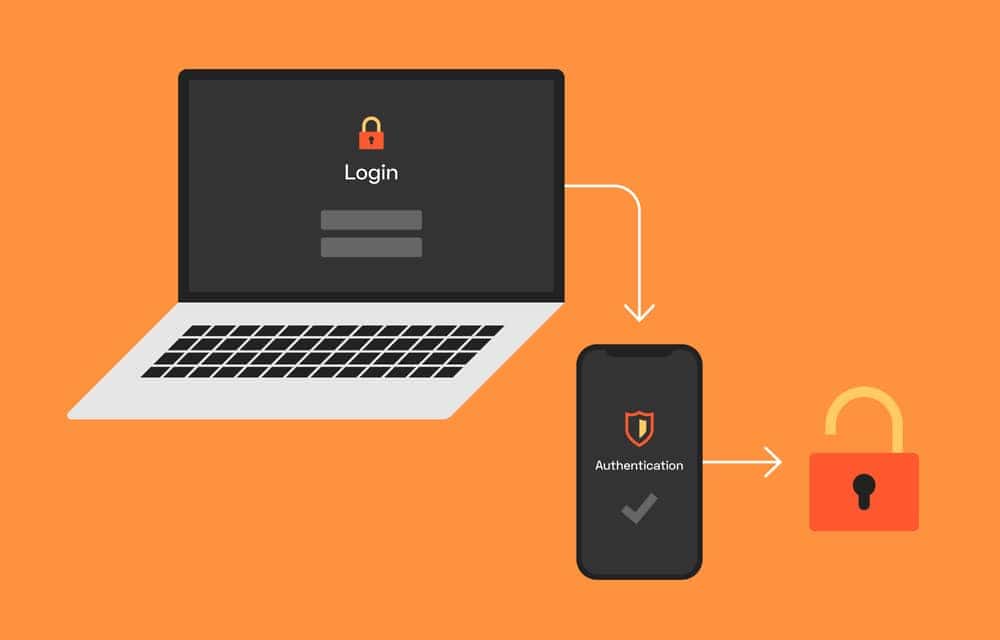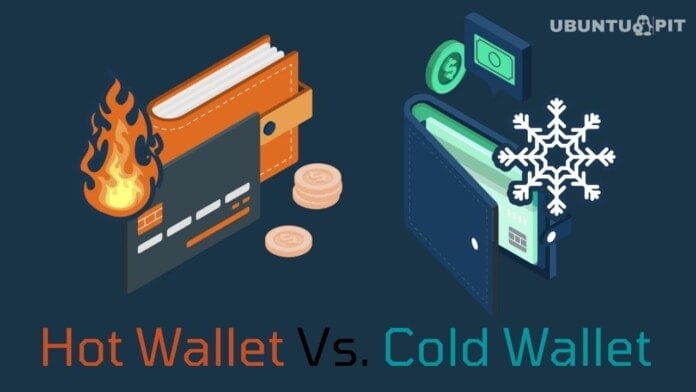There is a huge debate on hot wallet vs. cold wallet among crypto traders. Do you like to know which one is the most suitable? Well, each one comes with some advantages and disadvantages as well. Both are designed for a particular group of users. The hot wallet is designed for traders who need to make crypto transactions frequently, and the cold one is designed to be perfect for those who need to store an extensive number of cryptocurrencies. Let’s explore to know more in detail about both options.
Hot Wallet vs. Cold Wallet: What are That Mean?
A crypto wallet is a physical medium, program, service, or device that stores private and/or public keys for crypto transactions. Apart from storing the keys, the crypto wallet comes with the functionality of signing and/or encrypting information. The security of a crypto wallet mostly depends on the way you store the private key.
There are a wide variety of crypto wallets out there, such as hot wallets, cold wallets, paper wallets, and many more. The article is specific about the comparison between cold wallet vs. hot wallet. But before going into the detailed comparison, I would like to focus on some of the basic concepts about these wallets.
What is a Hot Wallet?
A hot wallet is a software and a kind of digital storage to store cryptocurrency such as Bitcoin, Ethereum, Litecoin, Ripple, etc. You can access a hot wallet through your phone and computer due to its web connectivity. So you can easily make your crypto transaction.
The Pros of the Hot Wallet
A hot wallet is an app that allows to store crypto and make transactions. The wallet is available in a variety of types, including mobile wallets, web wallets as well as desktop wallets. Alright, the hot wallet comes with many advantages; let’s have a look.
1. Instant Access: If you make transactions frequently, you don’t have time to look for a USB connection. Mobile wallet apps allow you to monitor your crypto assets 24/7, whatever the circumstances.
2. Ease Of Use: They are easy to install and use as well. Apart from that, they come with a simple, beautiful, and user-friendly UI (user interface). Most of them have a built-in exchange, or they are connected to some kind of third-party crypto exchange at least.
3. Flexible and Low Cost: In most cases, hot wallets allow you to store a large number of cryptocurrencies such as Bitcoin, Ethereum, Litecoin, and many more. Since it is a kind of software, it should be updated to continuously improve the UX (user experience). Moreover, hot crypto wallets are either completely free of cost or just have a nominal maintenance cost.
4. Custody: Some cryptocurrency investors prefer not to take full responsibility for protecting their digital assets. Instead, they use the services of third-party custodians for safekeeping their assets. With a custodial wallet, your private keys are controlled by another party; therefore, you have fewer chances of losing all your properties along with lost keys. So you can keep your deposit secured by using hot wallets since most virtual wallets are custodial.
The Cons of the Hot Wallet
Although the hot wallet comes with a lot of impressive features and benefits, it has some drawbacks too. The hot wallet is less vulnerable, and you can lose all of your assets with even a simple mistake. You also need to depend on third-party providers for private keys. Let’s see more below.
1. Prone to Theft: Since the private and public keys are stored on the web, the assets stored in a hot crypto wallet are highly vulnerable to attack. The internet is not completely safe because of hackers. Storing your cryptocurrency in a hot wallet (as it is connected to the internet) is always a bit risky.
2. Reliance on the Third-party: Most hot wallets providers don’t provide you access to your private keys. You only get a login credential to get access to your account. You even can not make a transaction without an intermediary despite sharing responsibility for the safety of assets. Therefore, you will never get complete control over your assets.
3. Asset Loss: If the resource or exchange hosting a hot wallet goes out of business and your assets are not insured, you will lose all of your assets. When the wallet is hacked, the same will happen. So insurance is highly essential for storing your crypto assets in a hot wallet.
How to Protect a Hot Wallet?
By making the comparison of hot wallet vs. cold wallet, it seems to me that the hot wallet is not the safest option for storing your cryptocurrency. However, you can make it secure enough by taking some important steps. Here are some essential tips to protect a hot wallet below.
1. Store a Small Amount of Crypto in the Digital Wallet: Of course, you don’t carry all of your savings in your pocket, right? Well, the approach is the same here in terms of your digital currency. You should keep only essential amounts of cryptocurrency in your hot wallet. To be more precise, you should store the exact amount that you need to make daily transactions. For storing a large amount of crypto, you can use a hardware wallet instead.
2. Apply 2FA for Cryptocurrency Security: Every hot wallet is password-protected, but some options come with 2FA (Two-factor authentication) to make it more secured. 2FA will add extra security, providing a sensitive one-time password to your phone or email.

If your hot wallet offers 2FA, of course, you should use it to keep your assets more secured. There are several ways you can get the one–time password from the 2FA system. Let’s explore them and choose a preferable one.
- SMS: There are several ways a one-time password sent via SMS can be vulnerable; malware injection and social engineering are two options to mention. Even though the SMS 2FA is not the safest option for wallet protection, it is still more acceptable than no two-factor authentication at all.
- 2FA App: This is also a less secure option for cryptocurrency security with 2FA. In this method, you need to install a 2FA authentication app on your smartphone, on which you will get a one-time password. This password can be intercepted in various ways. However, it is still a better option than no 2FA option.
- Protectimus Slim NFC: You can get the best hot wallet protection with the small programmable hardware token. Since the token has no connectivity to the internet connection, it is safe enough from malware attacks. It is ever safe from any kind of virtual attack. So this is the best option to get secured with 2FA.
3. Proper Encryption for Virtual Wallet Protection: Encryption means securing your hot wallet with a password. Actually, it’s not about simple password protection. The encryption process is rater adding a strong password that contains at least 16 characters, and the password must include the combination of lower case, upper case, special characters, and numbers.
4. Create Backups on a Regular Basis: You can lose your phone, your computer can crash, or you even can’t access your digital wallet for any other reason. In this case, you can lose all the assets stored there. That’s why it is really important to create backups every time to keep your wallet safe in any situation. And it’s also a wise decision to use encryption while backing up. Of course, you have to store the backups in several secure places.
5. Keep Your Software (Hot Wallet) Up–To–Date: Like other software, you need to keep your hot wallet updated. More specifically, a hot wallet is a kind of software, so it requires several updates over time. You just need to make sure your digital wallet is updated whenever it is needed.
The up-to-date software is safe enough, so it is difficult to hack. So you should never compromise with the update issue. However, you need to make sure the latest update is properly implemented, and all the bugs are fixed before updating your one.
6. Apply Multi-Signature: Multi-signature was designed to mitigate the risk from digital wallets. The approach requires you to have multiple wallets (around 3 to 4) in a group and link them with each other. The system requires at least three signatures to make a transaction. So it’s virtually impossible to steal assets by hacking one of the linked wallets.
7. Secure Your Assets for The Future: Yes, in general, it is a security risk to give someone else your keys. Because they can access your cryptocurrency with security keys. If someone gets the security keys and access your wallet to take control over your assets, you won’t get your funds back.
But if you suddenly die or something bad happens to you, your family members won’t access the funds stored in the wallet. That’s why you need to keep a safe place; for example, it can be a deposit box where you can store the security keys and other essential information. Inform them about the box to access it if anything happens to you.
8. Few Extra Tips on How to Secure Your Bitcoin Wallet: By enabling enough security, you can keep the hot wallet one step forward in the comparison between a hot wallet vs. cold wallet.
- Use a master email and never share with anyone, and check the spelling of the website URL.
- Create a specific user on your browser, and do not use any add–on.
- SSL ensures security. So make sure the website starts with HTTPS to make transactions.
- Never use public W-Fi to perform any crypto-related action.
- Crossmatch the receiving address several times whenever you need to make your transactions.
- Switch the wallet provider every 2 to 3 months. If you make frequent transactions, then you should change the provider every month.
What is the Cold Wallet?
Unlike hot storage, cold storage has no web connectivity. Cold wallets usually take the form of a physical device; in fact, it’s a piece of compact hardware. Do you prefer to keep your private and public keys safely? If so, then cold storage is the perfect option for you.
The cold wallet is a kind of hardware device. Since the cold wallets are not connected to the internet, there is no risk of a hacker gaining access to a private key. However, if the storage loses, then you will lose your assets forever. So you should keep it in the safest place.
The Pros of The Cold Wallet
The cold wallet is a hardware storage system, and it doesn’t require any web connectivity. That’s why it is safe and secure. In most cases, hackers need an internet connection to access a system. Since the cold has no connectivity, it is almost impossible for hackers to harm it. Have a look below to know more.
1. Security: You do not need to rely on any third-party crypto exchange provider with your private keys. Since the wallet has no internet connectivity, the hackers won’t be able to access it. You don’t even need to carry it along with you. It’s better to put it in a safe place; for example, a bank vault can be a good option.
Apart from that, you can keep the storage in your home and encrypt it with password or pin protection. Some options even come with an additional layer of biometric authentication to make it more protected. So it is a great option to store a large number of digital assets.
2. Recovery: The initial setup requires you to enter a long recovery phrase. It’s unique and generated by the device. When your hardware wallet is damaged and lost, you can get a new one to recover your assets.
It also allows you to import the data into a software wallet. In this case, you should purchase a hot wallet directly from the manufacturer to securely import the data. Then you can get your assets back perfectly.
The Cons of the Cold Wallet
Even though the cold wallet offers enough security to store cryptocurrencies, it has several cons too. Due to the lack of web connectivity, this option is not so convenient for daily traders. Let’s see some of the disadvantages of the cold wallet.
1. Delays: It takes longer to access the cold wallet device. Even the transaction itself takes a good amount of time to be done. Also, you can’t use it in a public place or here and there. It requires a safe and secure place so you can use it conveniently. That’s why it is not perfect for the traders who make transactions almost daily.
2. High Price: Most online-based crypto-wallets are almost free, and they may cost you just a few bucks. On the other hand, you require at least $100 to get a cold wallet. The highly-functional one even costs you more.
3. Limits: Unlike hot wallets, cold wallets support only a few cryptocurrencies. You may face a situation like the cold wallet you have purchased doesn’t accept your preferred crypto. So it’s a remarkable drawback of cold storage.
Our Recommendation on Hot Wallet vs. Cold Wallet
Here is the final comparison below based on the criteria such as functioning, targeted users, types, and security as well. This contrast and comparison will help you to decide which one is the most suitable for you.
1. Functioning: Since a hot wallet is software and runs on the web, it allows to process the transaction rapidly. The wallet can directly deliver the cryptos due to the internet connectivity.
On the other hand, a cold wallet is simply a physical device that perfectly stores your digital assets. The lack of web connectivity makes it a bit less convenient compared to its hot wallet counterpart.
In fact, internet connectivity makes the key difference between a hot wallet vs. cold wallet. However, cold storage just can store the assets, but it has to send the information to the internet to make transactions.
2. Intended users: Hot wallet is perfect for individuals or traders who need to make frequent transactions due to their business or any other reason. In contrast, if you do not need to make online crypto payments on a regular basis but want to store a handsome amount of digital assets, the cold wallet is the most suitable for you. The hot wallet emphasizes the convenience of the users, while its cold counterpart focuses on the maximum level of security.
3. Types: Coinbase and Binance are the two most popular types of web-based hot wallets. Electrum is the overall best hot wallet. Mycelium is perfect for mobile users. If you are a beginner, then you should use Coinbase. In contrast, there are two different types of cold wallets out there; hardware wallets as well as paper wallets. Trezor Ledger is one of the most popular hardware wallets.
4. Security: When it comes to making the comparison of cold wallet vs. hot wallet based on security, cold is the ultimate winner. In fact, cold storage doesn’t require any internet connection to store cryptos. That’s why it is almost impossible for hackers to make unauthorized access to cold wallets.

However, the hot waller is vulnerable, and the hackers can easily harm your assets since it has connectivity with the web. So you can use this one just for making daily transactions. The hot wallet is not a good option for storing a large number of cryptocurrencies.
Finally, Insights
By comparing and contrasting between Hot Wallet vs. Cold Wallet, it’s hard to say specifically which one is best. Both options come with their own pros and cons. You should just choose the one that fits your needs most. The hot wallet is convenient to use, but there is a bit of risk.
In contrast, the cold wallet is safe and secure; however, it is less convenient than the hot wallet. In my opinion, you should use both; the cold one is for storing a huge amount safely, and the hot one is for daily transactions. I have come to the last of the article, but before signing off, I would like to share a piece of my previous information about how to invest in cryptocurrency. You can follow these tips to avoid risk factors and get success in the long run.
